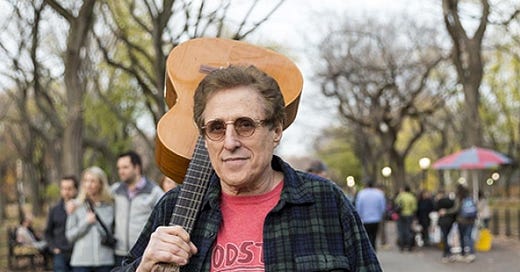Joel Rosenman
Joel Rosenman, born in 1942, is best known as one of the co-founders of the Woodstock Music & Art Fair.
Joel Rosenman, born in 1942, is best known as one of the co-founders of the Woodstock Music & Art Fair, an event that has become emblematic of the 1960s counterculture movement. His journey to Woodstock began with an entrepreneurial spirit and a partnership with John Roberts, leading to one of the most iconic cultural events of the 20th century.
Before Woodstock, Rosenman pursued a career that blended his interests in music and business. He was educated at Yale and later attended the University of Pennsylvania Law School, showing early on a diverse set of interests and skills. Despite his formal education in law, Rosenman was also a talented musician, playing guitar and writing songs, which kept him connected to the music world.
The path to Woodstock began when Rosenman and Roberts, who had inherited a significant amount of money from his family's toothpaste and drugstore empire, were exploring unique investment opportunities. The duo initially embarked on a venture to create a sitcom about two young men with more money than they knew what to do with, which somewhat mirrored their real-life situation. As part of their research for this project, they placed an ad in The New York Times and The Wall Street Journal offering investment capital for unusual business proposals. This ad caught the attention of Michael Lang and Artie Kornfeld, who approached Rosenman and Roberts with the idea of a music studio in Woodstock, New York, which later evolved into the concept for the Woodstock festival.
Rosenman and Roberts were instrumental in financing the festival, with Rosenman playing a key role in the planning and execution. The team faced countless challenges, from permits and opposition from local communities to logistical nightmares that threatened to derail the event. The original plan was to hold the festival in Woodstock, NY, to capitalize on the town's association with popular musicians such as Bob Dylan. However, after several location changes, the festival finally took place on Max Yasgur's dairy farm in Bethel, New York, from August 15 to 18, 1969.
Woodstock turned out to be a historic cultural moment, drawing an audience of over 400,000 people. It featured performances by some of the most influential musicians of the era, including Jimi Hendrix, Janis Joplin, and The Who. Despite the logistical challenges, including food shortages, sanitation issues, and bad weather, Woodstock was widely regarded as a peaceful celebration of music, love, and peace.
After Woodstock, Joel Rosenman continued to work in business and finance. He and Roberts co-authored a book titled "Young Men with Unlimited Capital," recounting their experiences in organizing the festival. Rosenman has also been involved in various business ventures and has served on the boards of several companies.
Rosenman's contribution to Woodstock and his partnership with John Roberts, Michael Lang, and Artie Kornfeld not only created a landmark event in music history but also symbolized the ideals of the counterculture movement of the 1960s. His journey from a musician and aspiring businessman to the co-founder of one of the most iconic music festivals in history illustrates the confluence of creativity, entrepreneurship, and a spirit of innovation that defined the era.


